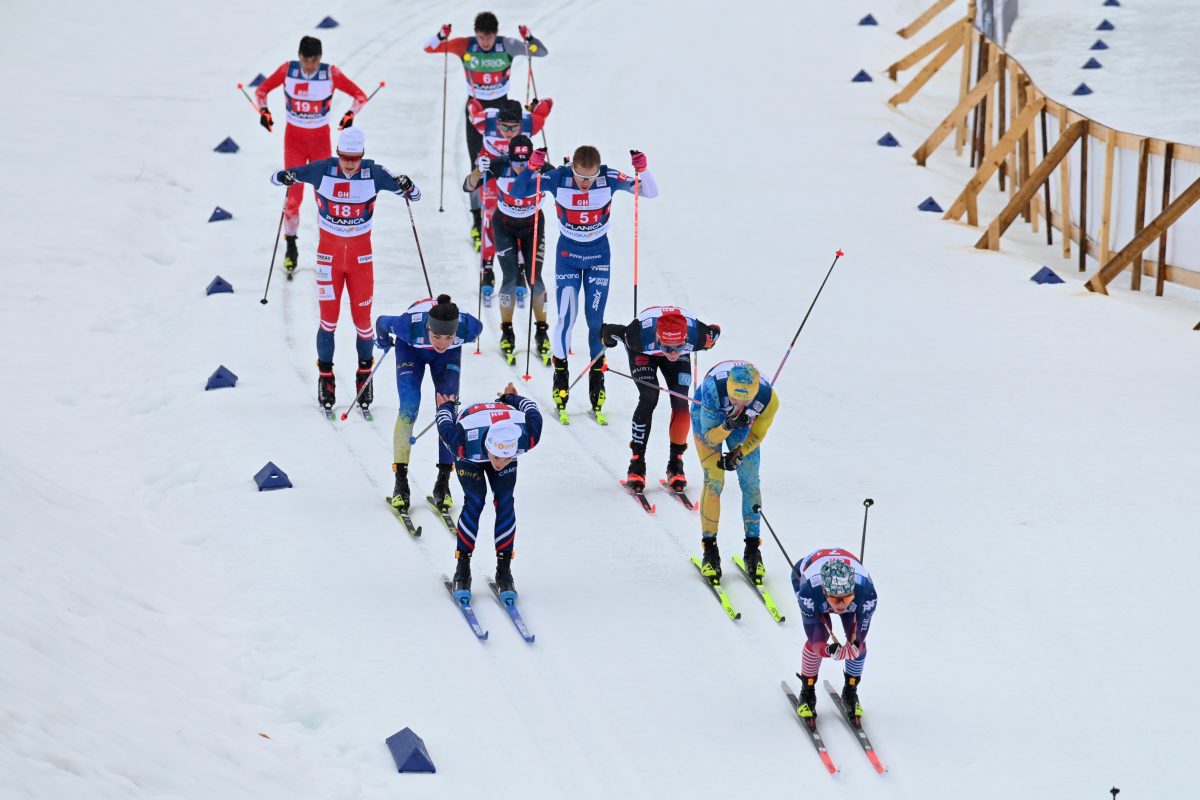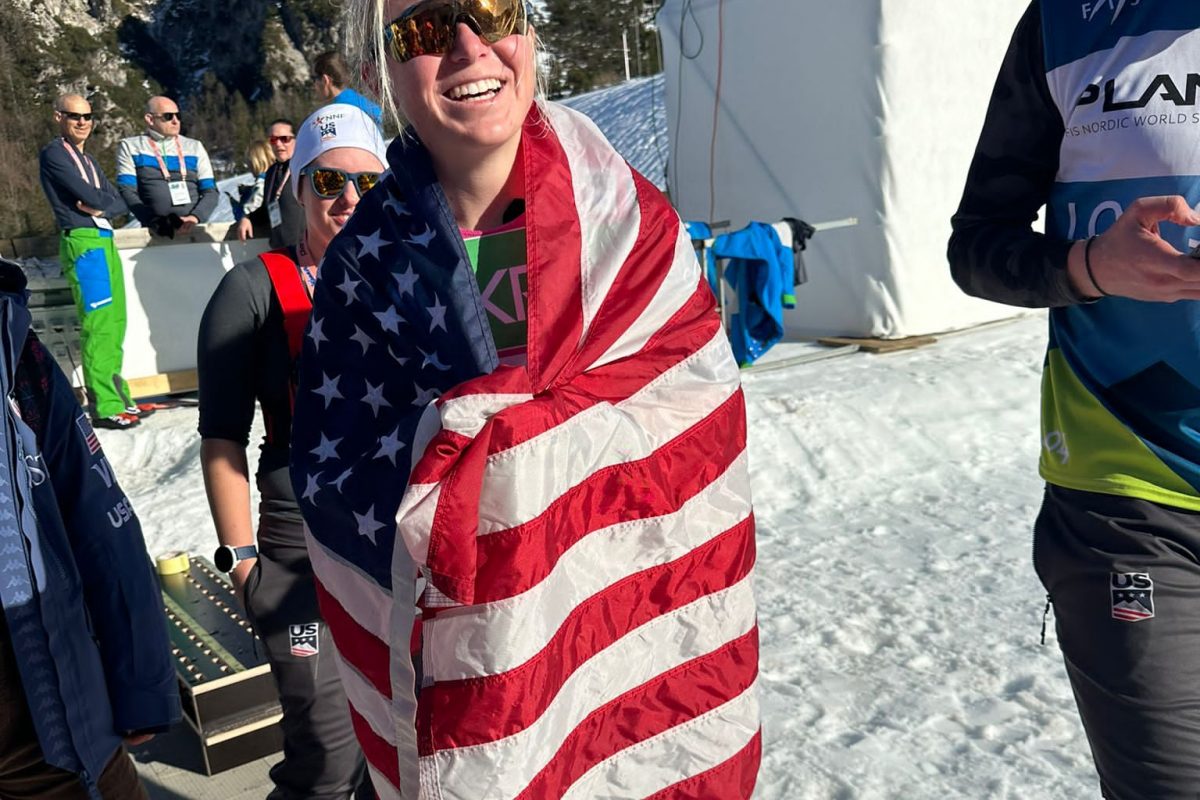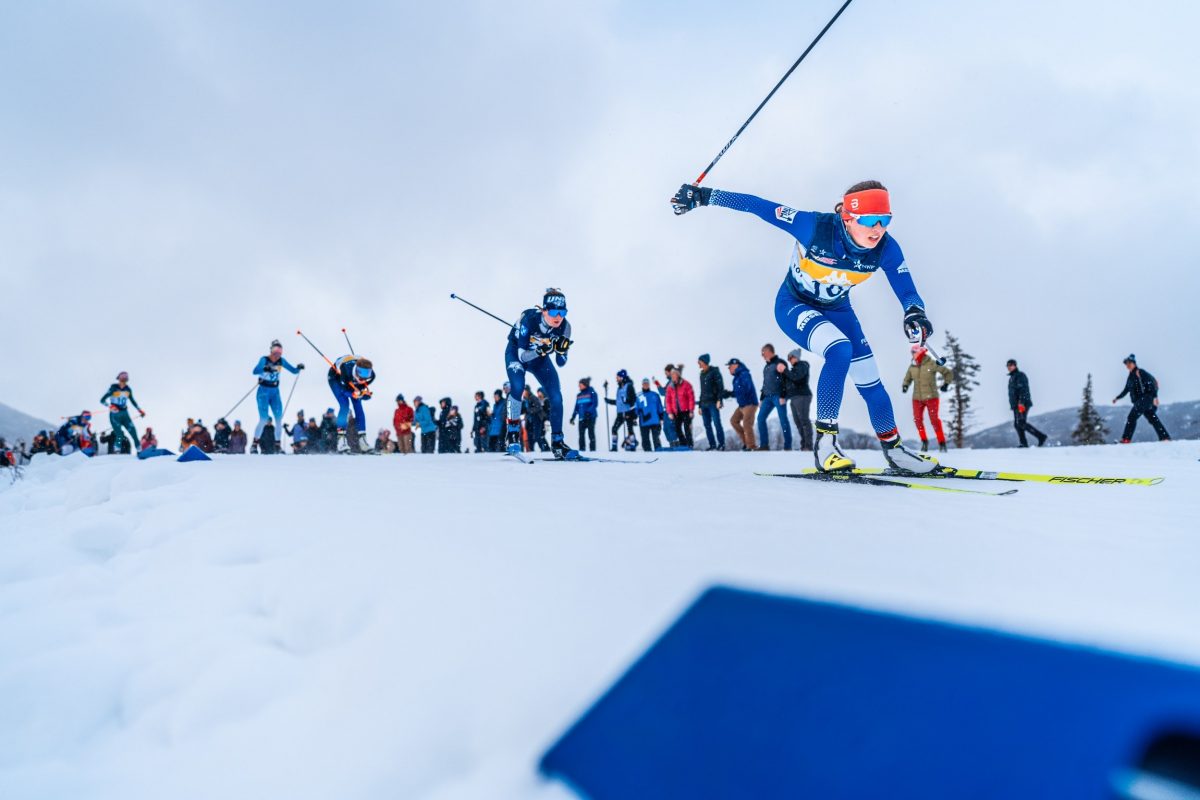
RUHPOLDING, Germany – When Jake Dalberg made the decision to join the National Guard at age 17, this was exactly what he had in mind.
“It was tough, but at the same time I felt like it was what I wanted to do and that was the way to do it,” Dalberg, now 19, said of the decision that the National Guard was his best route forward in biathlon.
In just his third year in the sport, Dalberg is here in Ruhpolding as a sort of adjunct member of the U.S. national team training camp. Although Dalberg and teammate Wynn Roberts are staying in separate accommodations and are supported entirely by their own program, not the U.S. Biathlon Association, they see the national team athletes on the range and the trails every day and have joined in to test themselves in time trials.

“We work together with the national team very well,” National Guard coach Sarah Lehto said as she watched Roberts and Dalberg shoot. “They come to Jericho and sometimes send athletes over to Jericho and we work with them. And in the winter once in a while I’ve gone to World Cups if they need another coach. So we work really well together and I have a good rapport with the coaches.”
That’s what allowed this trip to happen. Last year, 2010 Olympian Wynn Roberts joined the Guard team; he was the most experienced and high-level athlete to sign up in several years. This spring, Lehto began to think about how to best provide Roberts with the kind of training he needed, which basically meant training with his former national team teammates.
She asked USBA High Performance Director Bernd Eisenbichler if Roberts if the Guard could bring Roberts to Ruhpolding; only later did she decide to bring Dalberg along. Now, there are two athletes and two coaches from the team in Ruhpolding.
For Dalberg, it’s an unusual opportunity, and one he’s bent on making the most of.
“I really just want to learn a lot,” he said as he stretched after a two-hour skating, classic, and shooting combination workout. “I’m still in just my third year of biathlon so I there’s still a lot of learning going on. So just watching the national team, seeing how they do things, and trying to get as much out of it as I can.”
What is he learning?
“Just being efficient in skiing, and resting, and all the little things,” Dalberg said. “Sometimes I feel like I’m skiing well, but then I’ll go look at video and go, wow, I really have a lot to work on.”
Lehto sees the trip serving a different purpose for her two athletes. Dalberg has raced mainly on the NorAm circuit and at a few military races, including one in Italy last year; he seldom gets to compete against the national team. The coach hopes that this will give him some valuable experience.

“It’s good for him to see the next level,” Lehto said. “You know, he sees video comparing himself to some of the top racers in the world and it’s a good way for him to learn. You can talk about these things, but until you’re really immersed in it it’s really hard to know what it’s like. He’s the only U.S. junior getting this type of training right now.”
Another difference is that while Dalberg has been training more or less all year, Roberts took a break after the race season ended so that he could go through Basic Training and then get married. He’s only been training for part of the summer. But Lehto said that Roberts was taking things well, even when he finished farther behind the national team men in time trials than he usually would. She didn’t think the fact that he was still working on fitness was a major detriment for the camp.
“For Wynn especially, he needs to be immersed in this environment,” Lehto said.
Normally, the two athletes train together in Jericho, Vermont. The Guard team typically brings its entire eight-athlete squad together for training camps once a month. While the program has enough funding to do a trip like this every year, it doesn’t always make sense to do so.
“We have done trips to Scandinavia in the past, but it depends on who you’re working with whether it’s even worthwhile to come over here and be in this environment,” Lehto said. “We have athletes who we didn’t bring, who are not capable of being in this environment. But it will benefit these two, for sure.”
The spread in ability levels on the team makes her job interesting, but not easy.
“We just have two coaches but we have eight athletes covering the entire spectrum,” Lehto said. “So that’s really tough. But I feel like we’re rebuilding our program… now that things are calming down in the world, people are beginning to re-look at this option. It’s more enjoyable for me to work with athletes who are closer together, and who are true biathletes rather than looking within the National Guard to find athletes who could potentially be biathletes.”
As for Dalberg, the Guard is working out perfectly. After just missing the World Youth Championships team last year, he is entering his first year as a junior and aims to make the World Junior team to Obertilliach, Austria.
“It’s been really good,” Dalberg said of the Guard experience. “I have really great support and good coaching. And it’s a good place to train in Jericho and a good roller loop, so good facilities.”
After the national team finishes up in Ruhpolding at the end of the week, they will head to Oberhof, Germany, to train and test skis in the ski hall. The Guard athletes, too, will head in that direction.
“We’ll be three weeks here, which is kind of long, but we’ll be two weeks here and then when they’re kind of tired of this, then they get to go skiing in the ski hall,” Lehto said.
Dalberg was excited; he had only ever skied in the summer once, and it was a completely different experience. He hopes that this time might be better for training.
“I was in Chile once in the summer and I skied there, but that was at 10,000 feet,” he laughed. “I think this will be a little easier.”



